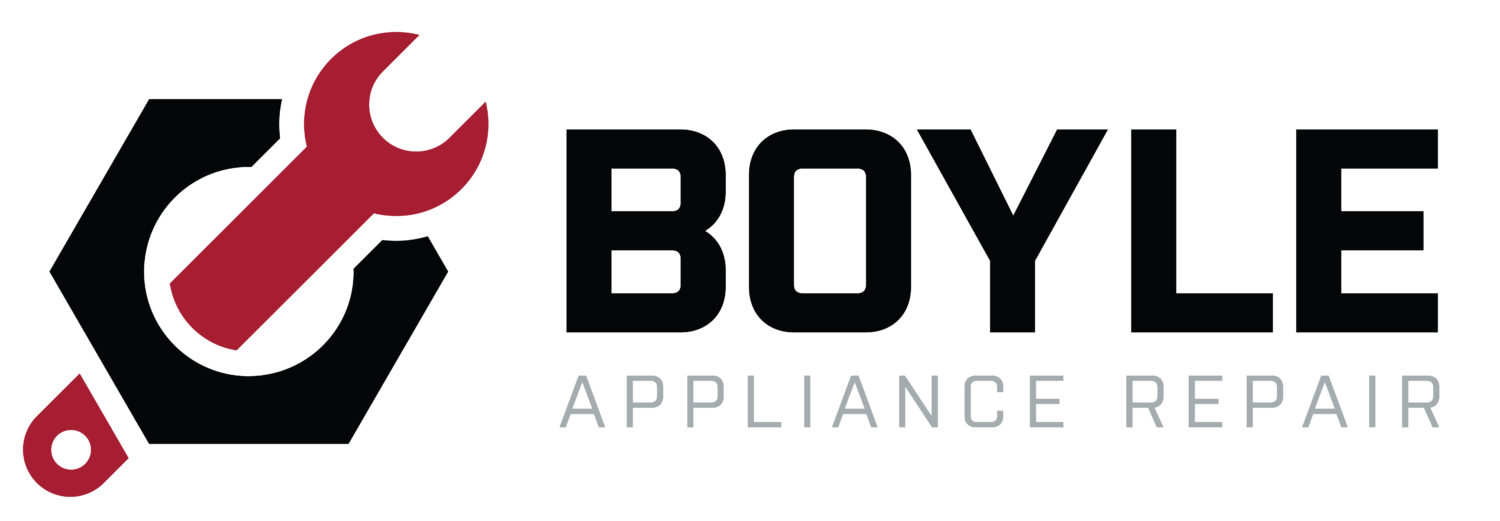Appliance Safety Tips
The appliances in your house can make life less stressful, but when you use them the wrong way, they might produce noticeable health risks. It is best to maintain appliances and be sure they don’t turn into dangers by following these helpful household appliance safety recommendations from Boyle Appliance Repair.
The tips below help prevent fires and injuries related to broken household appliances. That being said, hazards could still occur. If a home appliance has issues or malfunctions and becomes dangerous, call a professional appliance repair CITY.
GFCI Outlets in Damp Locations
Kitchens, laundry rooms, bathrooms, basements, outdoor areas and garages can be susceptible to possible moisture or water. Of course, electricity and moisture do not mix, so power cords and wires should always be plugged into ground-fault circuit interrupters (GFCIs).
This can prevent electrocution by tripping the circuit if any imbalances in power arise.
If you do not currently have GFCI outlets installed in wet areas inside of your house, now is the time to install them or call an electrician in CITY. After that, for even more safety measures, be sure to heed the warnings of appliance manuals that note that they are not for outdoor areas.
Electrical Cords, Electronics & Outlets Far Away From Water
Quite a few appliances are specially built for outdoor areas, such as charcoal and gas grills. If you have any electrical appliances outside – including dishwashers, refrigerators, ice makers, electric tools and others – be sure that all outlets and plugs are 100% dry. Using weatherproof electronics help with this, in addition to GFCI outlets with water-tight gaskets.
Extension Cords are Only a Momentary Answer
An extension cord poses a lot of evident risks, this includes:
The likelihood of loose connections that can result in sparks and start a fire.
The chance of power inconsistencies that could damage the appliance.
Increased susceptibility to water penetration that could cause electrocution.
The potential for cords overheating and becoming a fire hazard when an insufficient extension cord is used for a high-power appliance.
When choosing an extension cord for short-term use, ensure it’s the correct gauge for the electrical tool in question. The smaller the gauge, the larger the size for the wire. For example, a simple electrical extension cord for a garden tool could have a 16-gauge wire where a big cord for a AC unit requires a 12-gauge wire.
The length is also crucial. The longer the extension cord, the more power is lost on the way, a phenomenon referred to as voltage drop. Shorter cords are advised for power tools and equipment.
Read the Manual for Any Type of Appliance You Purchase
It is simple to assume that you know how to operate your new washing machine or dishwasher without reading the manual, but reading the manufacturer guidelines is necessary for a lot of reasons:
You should find out whether your house’s wiring is good enough to power the appliance. You might have to install a better circuit to prevent overloading any existing ones.
You learn more about advanced features you might not otherwise have known.
You discover if the appliance is intended for outdoor areas or not.
You don’t have the extreme frustration that can sometimes come from trying to operate a home appliance without instructions!
Unplug Small Appliances in Your Home When Not Being Used
You can limit unnecessary energy use by unplugging them when not in use. This is because small appliances sometimes include LED signals, timers and other features standby times.
Unplug monitors, TVs, printers, modems, internet routers, video game systems, cellphone chargers and more to reduce unnecessary energy use. But remember, it’s alright to keep DVRs and similar devices plugged in to not miss their automatic background functions.
For more tips on how to use home appliances safely, or to schedule a professional appliance repair company, please contact Boyle Appliance Repair. We can fix all major home appliances!
OTHER RESOURCES:
Appliance Repair Cost
DIY Appliance Repair Tips
Repair or Replace Appliances
Refrigerator Parts
Home Services Campaign Disclaimer: This site is a free service to assist homeowners in connecting with local service providers. All contractors/providers are independent and this site does not warrant or guarantee any work performed. It is the responsibility of the homeowner to verify that the hired contractor furnishes the necessary license and insurance required for the work being performed. All persons depicted in a photo or video are actors or models and not contractors listed on this site.
Copyright ©2025 Boyle Appliance Repair
